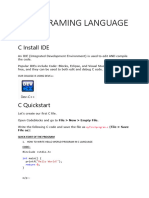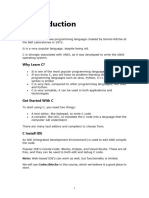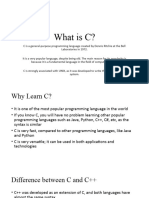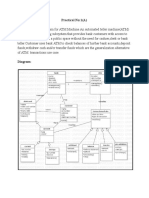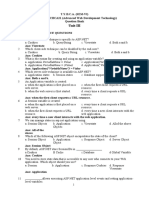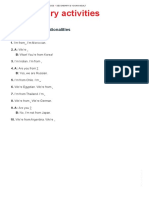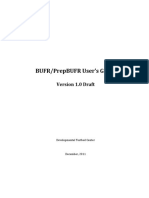0% found this document useful (0 votes)
15 views23 pagesC Language
The document provides an introduction to the C programming language, created by Dennis Ritchie in 1972, highlighting its importance, features, and applications. It covers fundamental concepts such as variables, data types, operators, control structures, and functions, along with examples and syntax. Additionally, it explains the use of comments, constants, and arrays in C programming.
Uploaded by
Dash ShubhamCopyright
© © All Rights Reserved
We take content rights seriously. If you suspect this is your content, claim it here.
Available Formats
Download as PDF, TXT or read online on Scribd
0% found this document useful (0 votes)
15 views23 pagesC Language
The document provides an introduction to the C programming language, created by Dennis Ritchie in 1972, highlighting its importance, features, and applications. It covers fundamental concepts such as variables, data types, operators, control structures, and functions, along with examples and syntax. Additionally, it explains the use of comments, constants, and arrays in C programming.
Uploaded by
Dash ShubhamCopyright
© © All Rights Reserved
We take content rights seriously. If you suspect this is your content, claim it here.
Available Formats
Download as PDF, TXT or read online on Scribd
/ 23


















